Our team
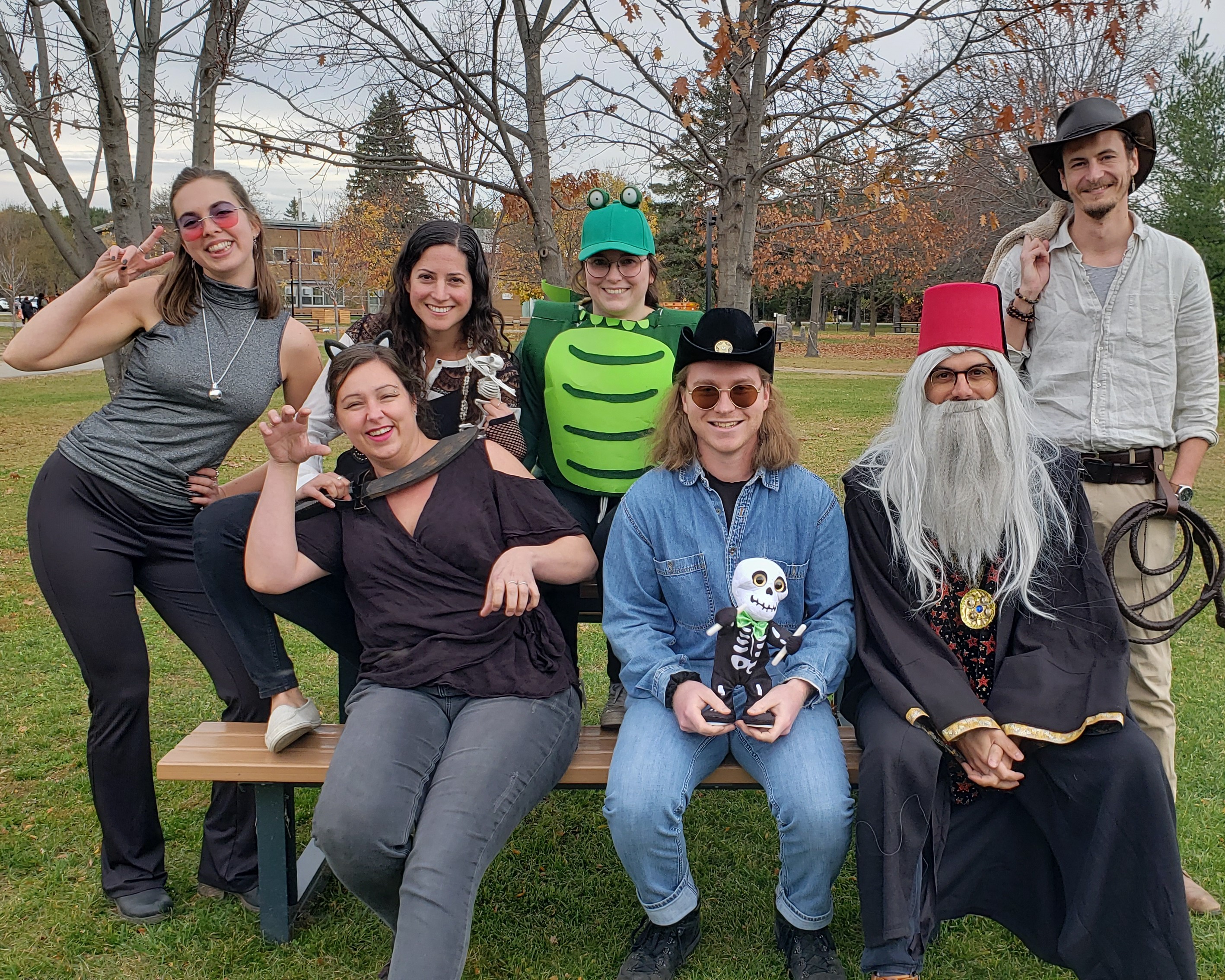
Chair
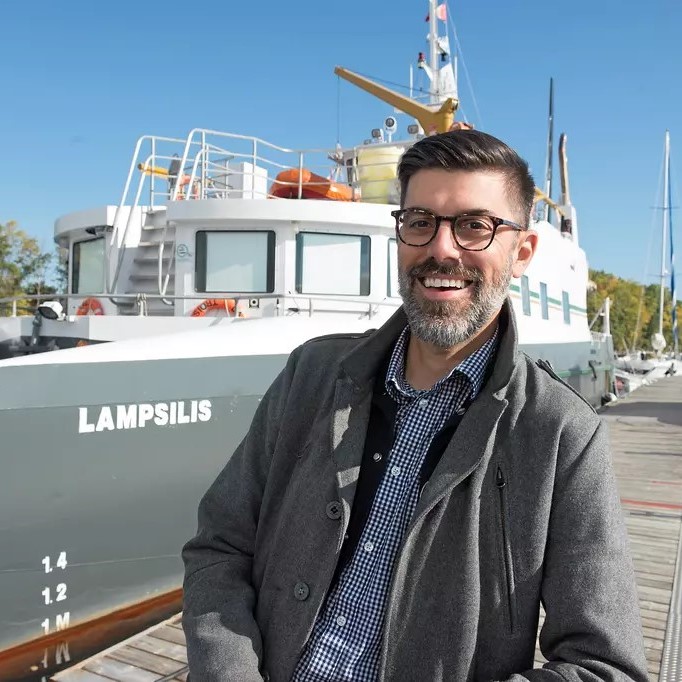
François Guillemette
- Université du Québec à Trois-Rivières
- Department of Environmental Sciences
- 3415 Léon-Provencher
- 819-375-5011, poste 3350
- Francois.Guillemette3@uqtr.ca
Personal background and research
I am a microbiologist passionate about the invisible world of aquatic ecosystems. My research explores the role of microbes in shaping carbon and nutrient cycles in freshwater and marine environments. After earning my PhD at UQAM, where I studied lake metabolism, I pursued postdoctoral research at Uppsala University and Florida State University, focusing on carbon biogeochemistry. Since joining Université du Québec à Trois-Rivières in 2016, I have had the privilege of working with a dynamic team of students and research professionals, conducting field campaigns in the Canadian Arctic, and exploring the vast St. Lawrence River aboard the Lampsilis research vessel.
Beyond fundamental research, I am deeply interested in the intersection of science, art, and education as a means to inspire change and promote water conservation. By bridging disciplines, I strive to make aquatic microbiology accessible and relevant to society, ensuring that our waters remain healthy for generations to come.
In 2024, I was elected co-director of the Centre for Research on Watershed–Aquatic Ecosystem Interactions (RIVE). Bringing together a multidisciplinary team of experts in ecology, biology, physical geography, and land use planning, RIVE investigates the complex interplay of natural and cultural processes that shape aquatic ecosystems and hydrosystems within the St. Lawrence River watershed and northern environments.
PhD students

Jade Dormoy-Boulanger
- Université du Québec à Trois-Rivières
- Department of Environmental Sciences
- 3416 Léon-Provencher
- 819-375-5011, poste 3339
- Jade.Dormoy-Boulanger@uqtr.ca
Personal background and research
Human Impact on the Fluvial Carbon Cycle in the Saint Lawrence Watershed
Jade is a PhD student in Environmental Science at the Université du Québec à Trois-Rivières. After obtaining a master’s degree focusing on how climate change affects the cyanobacterias’ dynamic in tributaries she decided to continue her studies and follow her passion for rivers. Currently, Jade is working on her PhD thesis, which explores how human activities and land use affect the spatial-temporal dynamic of dissolved organic carbon in the tributaries of the St. Lawrence River watershed. Her research interests also include bacteria metabolism, biostatistics and geomatic. She is involved in a variety of programs and committees focused on knowledge transfer with different student communities (elementary schools, high schools and university). Being a mother of two, when she’s not working on her researches, you can probably find her playing with both feet in the water with her daughters.
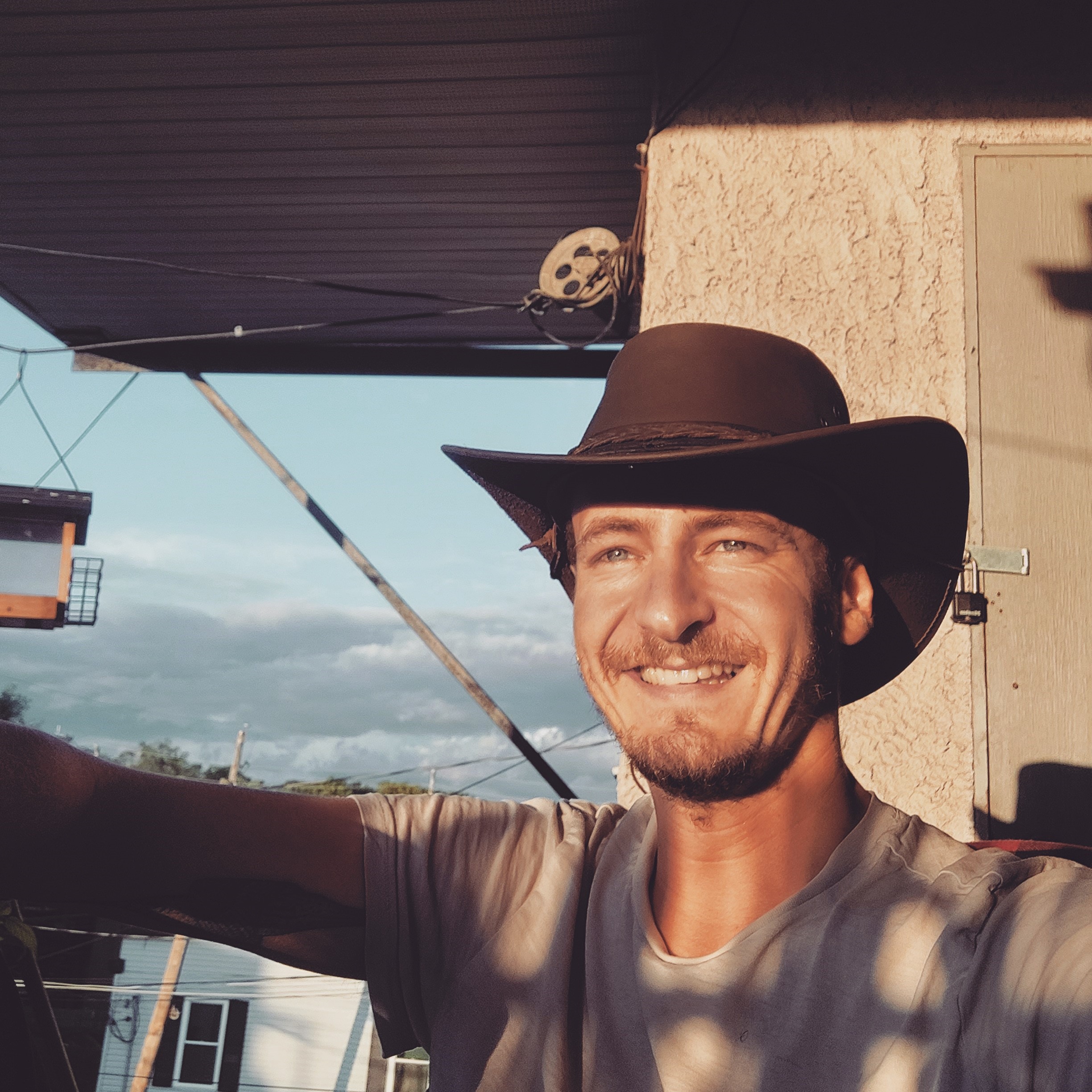
Corentin Flinois
- Université du Québec à Trois-Rivières
- Department of Environmental Sciences
- 3410 Léon-Provencher
- 819-375-5011, poste 3339
- Corentin.Flinois@uqtr.ca
Personal background and research
The Potential Role of Holopedium glacialis Capsules in the Carbon Cycle of Boreal Lake Ecosystems
Former sound engineer in movies productions and live shows, Corentin came back to biology in 2015. After a master's degree in environmental management and Coastal Ecology obtained in La Rochelle in France, he discovered UQTR for a training in Experts Pole for Lake St Pierre. He decided to settle there for a PhD, directed by Andrea Bertolo and François Guillemette. He works on a freshwater jelly zooplankton, Holopedium. Its proliferation in boreal lakes could have a certain impact on carbon cycles and these lakes metabolism, but how? Corentin will investigate!
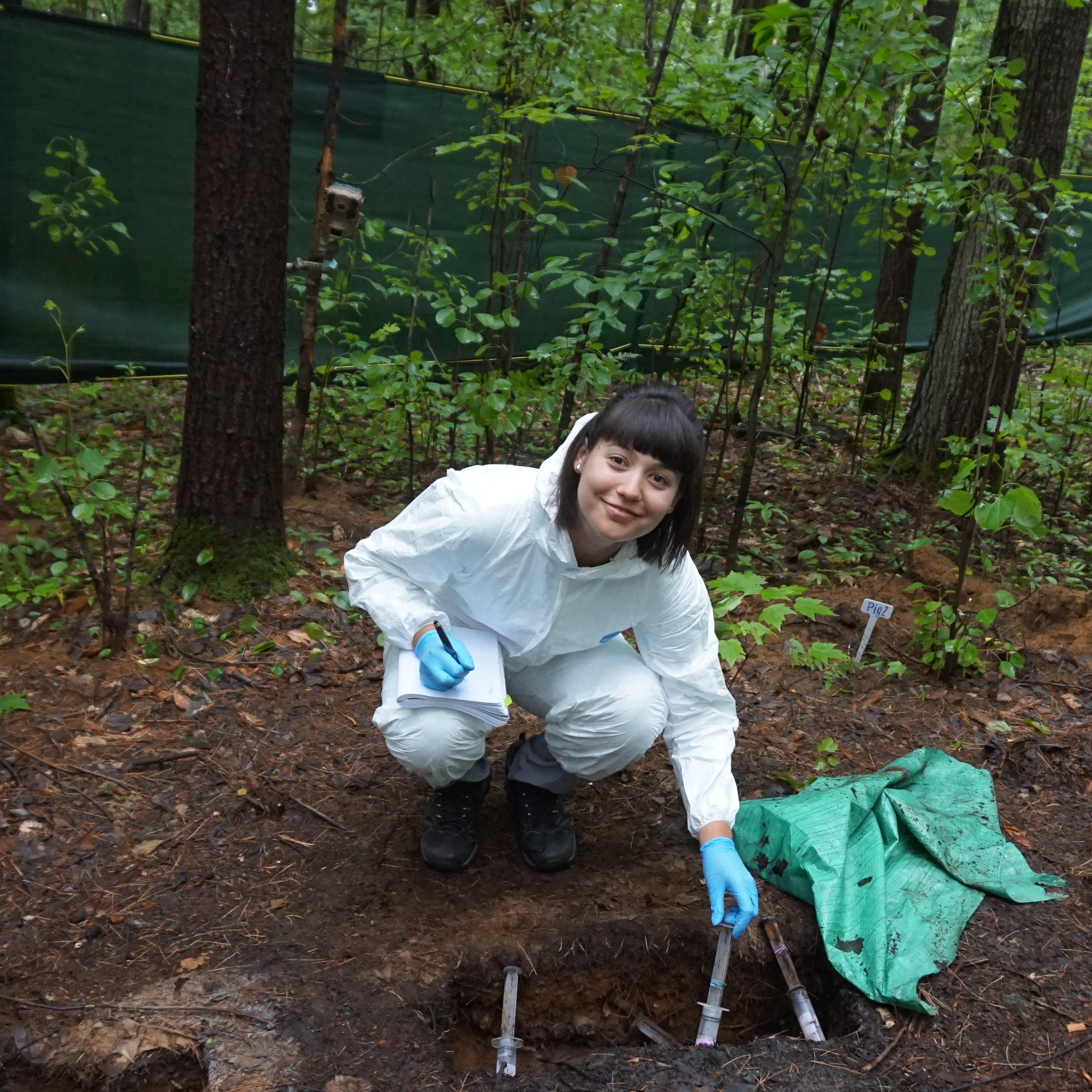
Emily Pecsi
- Université du Québec à Trois-Rivières
- Department of Environmental Sciences
- 3416 Léon-Provencher
- 819-375-5011, poste 3339
- Emily.Pecsi@uqtr.ca
Personal background and research
Evaluation of Potential Environmental Impacts of Taphonomic Research Facilities in a Cold Climate
Emily is a PhD candidate in biomedical sciences under the direction of François Guillemette and Shari Forbes. She is currently studying the spatial and temporal environmental impacts of body decomposition by studying soil bacterial-carbon dynamics. Her work aims to aid in the development of forensic techniques and contribute to the create of contamination mitigation practices for cemeteries and decomposition research facilities (aka body farms). Prior to her doctorate, she followed and documented the establishment of Canada’s first human decomposition research facility, REST[ES], and interned at UQTR’s anatomy laboratory. Emily obtained her BSc in Biology at Concordia University (Montreal, Quebec) and obtained a minor in Multidisciplinary Studies of Science. During her undergrad, she also gained research experience in cardiopathophysiology and bioorganic chemistry.
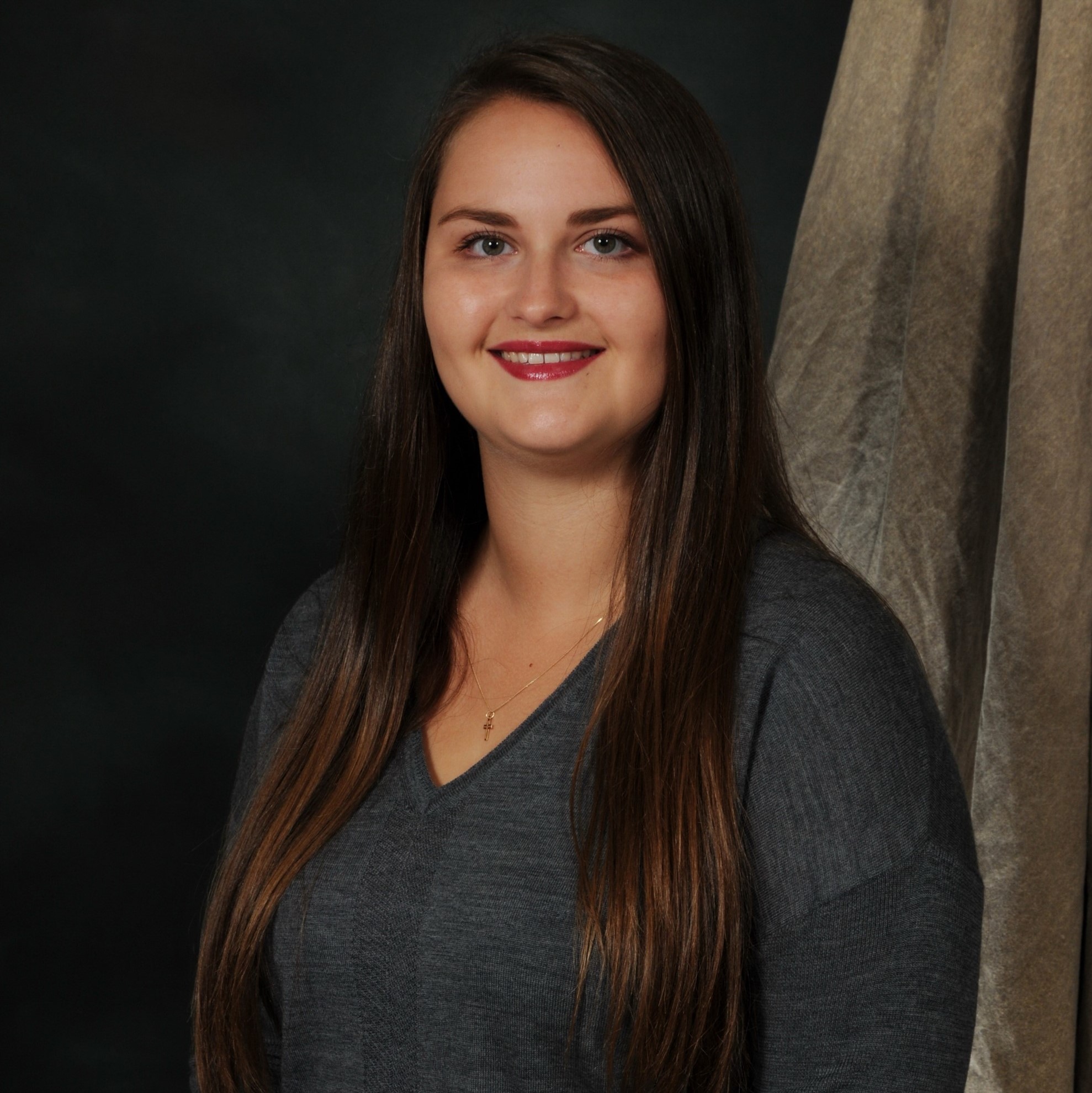
Roxanne Giguère-Tremblay
- Université du Québec à Trois-Rivières
- Department of Environmental Sciences
- 3416 Léon-Provencher
- 819-375-5011, poste 3339
- Roxanne.Giguere-Tremblay@uqtr.ca
Personal background and research
Assessing the Impact of Agriculture on Terrestrial and Aquatic Biodiversity in a Temperate Floodplain
My research journey began with the interactions between soil and plants during my bachelor's degree in Biology-Ecology (completed in 2017). This strong interest in research led me to pursue a master’s degree in environmental sciences at UQTR (completed in 2020) under the guidance of professors Vincent Maire and Hugo Germain, in order to delve deeper into the understanding of the relationships between the functioning of Quebec boreal ecosystems and the microbial biodiversity present in soils. Currently, I am a doctoral student in Environmental Sciences working with professors Vincent Fugère and François Guillemette to further advance the understanding of the microbial community and the dynamics of ecosystem functioning in the floodplain of Lake Saint-Pierre, focusing on terrestrial-aquatic interactions. As an ecologist, my research interests encompass ecosystem ecology, bacterial and fungal ecology, and metabarcoding techniques.
Personal background and research
Transformation and Retention of Organic Carbon Across the Land-Water Continuum in Boreal Watersheds
Following a degree in environmental engineering from ENSEGID in Bordeaux and a brief professional experience in estuarine ecology, Adrien pursued a master’s degree in Mountain Environment Ecology at the University Savoie Mont-Blanc (France) in 2021. This master’s program culminated in a 6-month internship in Jean-François Lapierre's laboratory, focusing on the winter biogeochemistry of mountain lakes. Currently, he is continuing with a Ph.D. under the guidance of Jean-François Lapierre and co-supervised by François Guillemette. His doctoral project aims to better understand the impact of external factors (seasons, climate, dams) on the processes of transformation and retention of organic carbon in several key compartments of boreal watersheds. A significant portion of his personal interests remain rooted in aquatic environments and outdoor activities, including aquarium keeping, scuba diving, hiking, and various travels.
MSc students
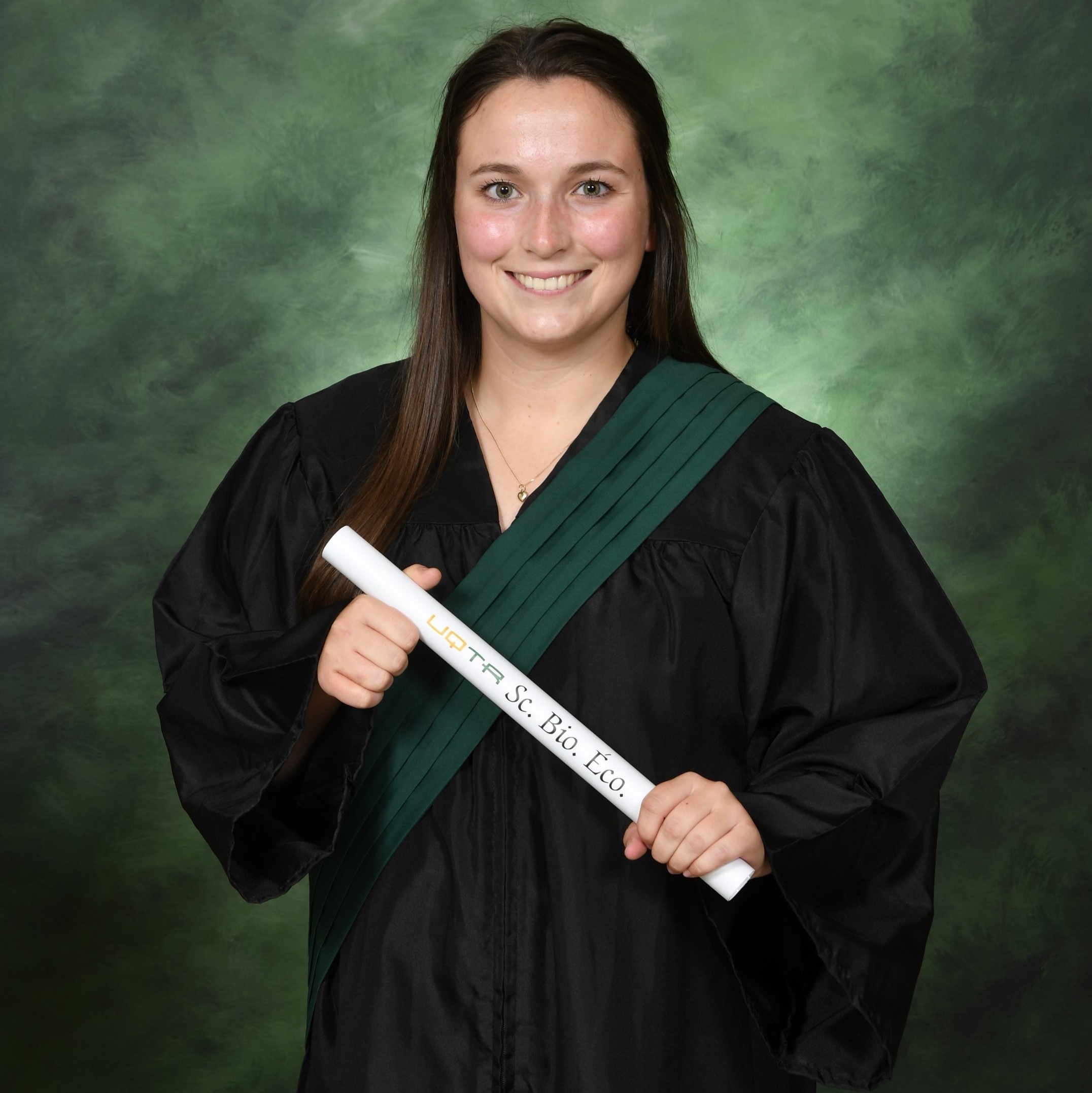
Laurence Earls-Bélanger
- Université du Québec à Trois-Rivières
- Department of Environmental Sciences
- 3416 Léon-Provencher
- 819-375-5011, poste 3339
- Laurence.Earls-Bélanger@uqtr.ca
Personal background and research
Bioavailability of Organic Matter from Trees in Boreal and Temperate Forests
Laurence Earls-Bélanger is a Master's candidate in Environmental Science at the Université du Québec à Trois-Rivières (UQTR), having previously obtained her Bachelor's degree in Biological and Ecological Sciences, also from UQTR. Her Master's project focuses on the bioavailability of dissolved organic matter from trees in runoff and percolation waters, under the guidance of François Guillemette and co-supervision by Vincent Maire. What sets her research project apart is its exploration of the variations in composition and bioavailability of dissolved organic matter that different seasons can bring. This study is conducted in collaboration with the Ministry of Forests, Wildlife, and Parks (MFFP), and it encompasses sites in both the boreal forest (Ashuapmushuan Wildlife Reserve) and the temperate forest (Montmorency Forest and UQTR campus).
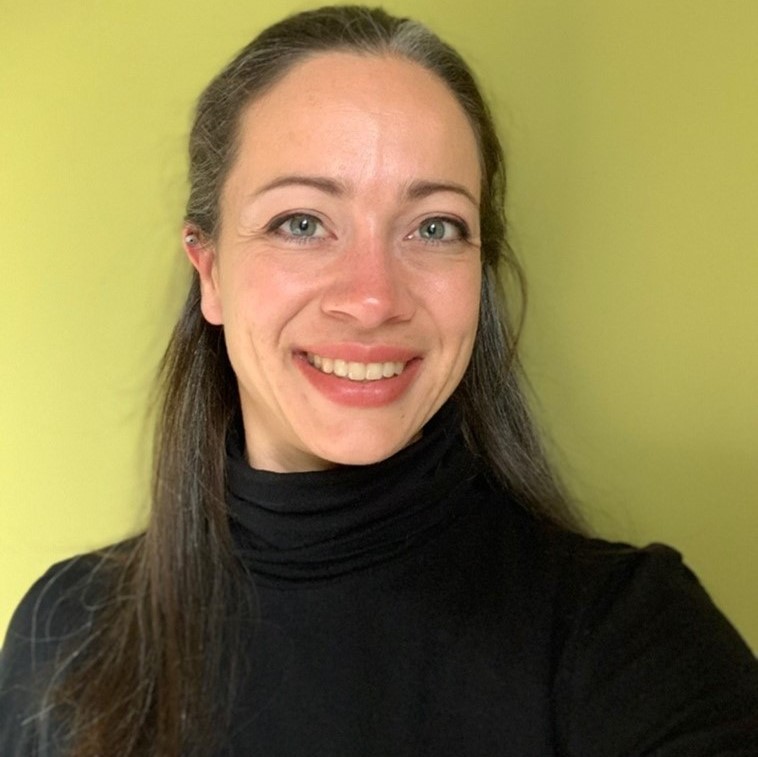
Jessika Malko
- Université du Québec à Trois-Rivières
- Department of Environmental Sciences
- 3416 Léon-Provencher
- 819-375-5011, poste 3339
- Jessika.Malko@uqtr.ca
Personal background and research
Lateral transfer of carbon at the soil-water interface in the floodplain of a temperate fluvial lake: a case study of Lake Saint-Pierre
Originally a forestry technician, Jessika has chosen to go back to school to meet new challenges to the height of her ambitions in the biology-ecology sciences. Having obtained her bachelors in June 2023, she pursues her vocation as a researcher through a master’s degree in environmental sciences at UQTR supervised by François Guillemette and Vincent Maire. Her passion evolves around the different ecological processes at the water-plant-soil interface. In today’s context, where sustainable exploitation is expected to be carried in respect of the environment, this knowledge is paramount to developing and applying sound agricultural practices adapted to the receiving land. Arable soil erosion and diminishing soil health hamper food security and nutrition quality. Her master’s project’s aim is to quantify and qualify the soil organic matter intercepted by agricultural riparian buffers in the lake Saint-Pierre littoral to better understand the role of these often overlooked structures by farmers.
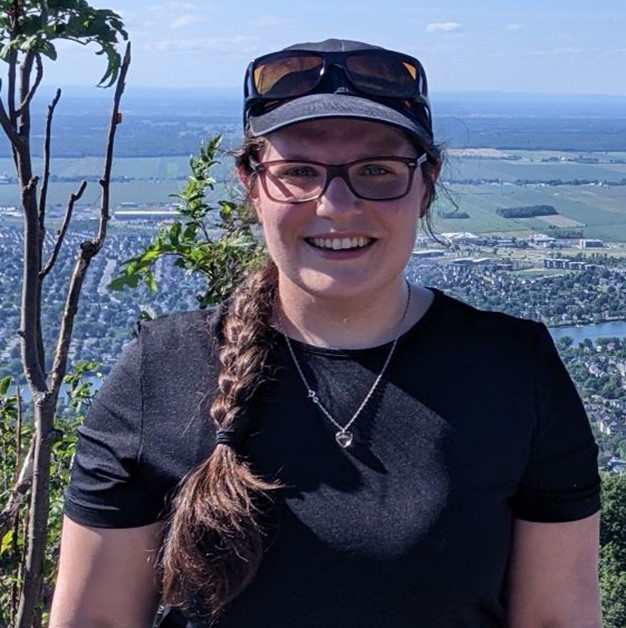
Virginie Favreau
- Université du Québec à Trois-Rivières
- Department of Environmental Sciences
- 3416 Léon-Provencher
- 819-375-5011, poste 3339
- Virginie.Favreau@uqtr.ca
Personal background and research
Influence of plant communities on the carbon dynamics of the active soil layer in the Canadian Arctic tundra
Virginie Favreau previously worked as a medical technologist for the Centre intégré universitaire de santé et de services sociaux de la Mauricie-et-du-Centre-du-Québec (CIUSSS MCQ). Aspiring to fulfill her dream of working in the environmental field, Virginie decided to go back to school, enrolling in a Bachelor's degree in Biological and Ecological Sciences at the Université du Québec à Trois-Rivières (UQTR), graduating in February 2023. With a strong interest in plants and soils, she is currently pursuing a Master's degree in Environmental Sciences at UQTR under the supervision of Vincent Maire and François Guillemette. Virginie is studying how northern plant communities influence the dynamics of organic carbon storage in the top 20 cm of Arctic tundra soil (Bylot Island, Nunavut, Canada).
Undergraduate student
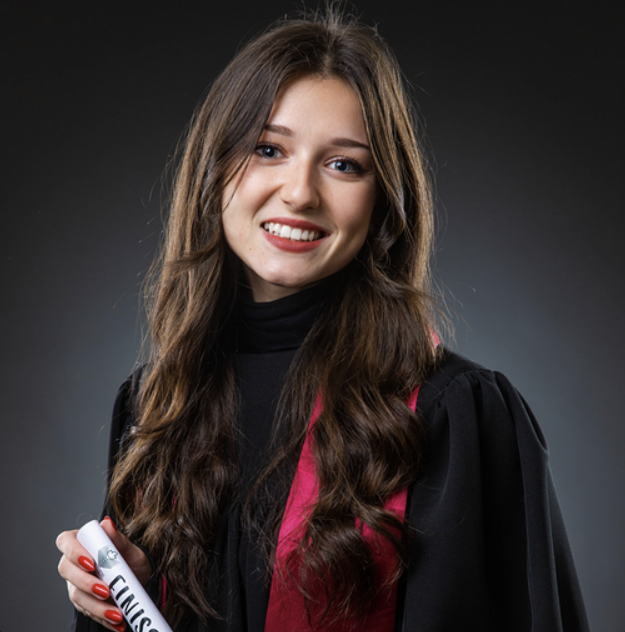
Alyson Rochefort
- Université du Québec à Trois-Rivières
- Department of Environmental Sciences
- 3416 Léon-Provencher
- 819-376-5011, poste 3339
- alyson.rochefort@uqtr.ca
Personal background and research
Export and transformation of organic carbon in glacier rivers of Nunavut
bio
Allumnies
Postdocs
Jim Félix-Faure
Graduated in 2019/Project Title: Carbon and greenhouse gases dynamics in a temperate floodplain under agricultural inflences/Present Position: Research engineer at U. Montpellier, France
Laurent Lamarre
Graduated in 2024/Project Title: Soil carbon cycling in a greening Arctic/Present Position: Research scientist at Forest Canada
MSc students
Silvia Rodriguez
Graduated in 2024/Thesis Title: Evaluation of Urban and Agricultural Contributions of Escherichia coli in the Saint Lawrence River/Present Position: Research Professionnal, River Institute, Cornwall
Mathieu Michaud
Graduated in 2023/Thesis Title: Influence of Agriculture and Hydrology on Dissolved Organic Matter Composition, Concentration and Biodegradability in a Temperate Floodplain/Present Position: Research Professionnal, Centre for research on watershed-aquatic ecosystem interactions
Isabelle Dalcher-Gosselin
Graduated in 2022/Thesis Title: Morphological traits control the production of tree-derived organic matter in temperate and boreal forests/Present Position: Biologist, Minister of Environment of Québec
Elizabeth Grater
Graduated in 2020/Thesis Title: Assessing the Metabolic Strategies and Responses of Microbial Communities to Anthropogenic Disturbances Along the St Lawrence River/Present Position: Research Professionnal, Ottawa River Keeper
Marie-Êve Bourget-Boulanger
Graduated in 2020/Thesis Title: Spatial and temporal drivers of fecal coliforms across the St. Lawrence riverscape/Present Position: Biologist, St-Maurice River - River Keeper Organization
Philippe Maisonneuve
Graduated in 2020/Thesis Title: The dynamics of dissolved organic matter in a large, human-impacted river system: implications for greenhouse gas emissions/Present Position: Research Professionnal, Fondation Rivières
Undergrad Honors
Clara Molhant
Graduated in 2023/Project Title: Winter fluxes of tree-produced dissolved organic matter in temperate and boreal forests/Present Position: MSc Student
Mérédith Bélanger
Graduated in 2023/Project Title: Degradation dynamics of organic matter from trees in temperate soils/Present Position: Biologist - Private Sector
Stanislas Meyer
Graduated in 2022/Project Title: Detection of the SARS-CoV-2 virus in wastewater effluents from small municipalities of Quebec, Canada/Present Position: MSc Student
Steven Tessier
Graduated in 2022/Project Title: Fungi diversity in a temperate floodplain under anthropogenic influences/Present Position: Environmental Assesment Agent, Private Sector
Roxanne St-Pierre
Graduated in 2022/Project Title: Greenhouse gases emissions across the St. Lawrence floodplain/Present Position: Environmental Assesment Agent, Private Sector
François Tanguay
Graduated in 2020/Project Title: Landscape regulation of E. Coli distribution and transport across the St. Lawrence valley/Present Position: Environmental Assesment Agent, Port of Bécancour

